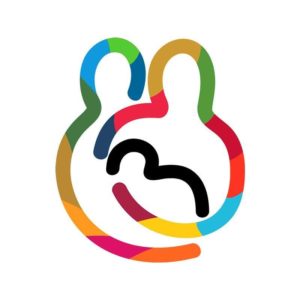Marshall County Health Department Breastfeeding Information
 Breastfeeding is the most natural way to feed a baby. No other method of feeding is as healthy for your baby as breastfeeding. These benefits begin the minute the infant is born and may last for a lifetime. Breastfeeding can also benefit the environment.
Breastfeeding is the most natural way to feed a baby. No other method of feeding is as healthy for your baby as breastfeeding. These benefits begin the minute the infant is born and may last for a lifetime. Breastfeeding can also benefit the environment.
Research shows that breastfeeding and breast milk are important for the environment, the infant, the mother and society.
Benefits for the environment
- Breast milk is a natural and renewable resource that causes no environmental harm
- Mother’s milk is not an industrially manufactured product–no wastes are generated to pollute air, water, soils or oceans
- Breast milk needs no packaging–no resources are needed to make all of the cans, labels, packets, boxes and plastic wraps
- Breast milk needs no fuel for preparation. No wood, gas or electricity is needed, so no greenhouse gasses or air pollutants are released
- Breast milk uses no water for preparation or clean-up
Benefits for the child
Children who are breastfed receive many health benefits, including
- Lower rates of sudden infant death syndrome (SIDS)
- Fewer illnesses like diarrhea, ear infections, colds, meningitis
- Higher scores on intelligence and vision tests
- Lower risk of childhood onset diabetes
- Protection against asthma and eczema (a type of skin irritation)
- Lower risk of obesity
- Have fewer cavities and are less likely to require braces
Benefits for the mother
The United States has one of the lowest rates of breastfeeding in the world. While many new mothers start out breastfeeding, more than half stop shortly after the baby is born. Babies aren’t the only ones that benefit from breastfeeding, though. It also has advantages for new moms.
Breastfeeding may:
- Help moms return to pre-pregnancy weight faster
- Decrease risk anemia and excessive bleeding after birth
- Help moms miss fewer days at work
- Decrease risk of breast and ovarian cancer
- Reduce risk of osteoporosis
- Breastfeeding is cost effective
Our society can greatly benefit from increased breastfeeding. The estimated cost of feeding a baby formula rather than breastfeeding is approximately $1,300 per year; that’s four times what it costs to breastfeed. The nutrients in breast milk may keep children from getting sick as often, therefore reducing the number of days off work parents would take to care for their children.
Breastfeeding cuts down on the need for costly health services paid for by insurers, government agencies or families. It’s also more cost effective and better for the environment. It requires no electricity or fuel for its production or packing, thus making it more cost-effective and environmentally friendly.
Breastfeeding is the best way to both nourish and nurture your baby. Learning to breastfeed takes practice for you and your baby. Pregnant women, new mothers and their families often have questions about breastfeeding, or need help in getting started. The Breastfeeding Support Services program offers counseling for families with questions, as well as information on breastfeeding-related services. Extra services are available to families participating in the WIC program. For more information call Kayle Sanders at 270-252-2692.
The link below provide some basic breastfeeding information. For more details, talk to your obstetrician or pediatrician, a lactation consultant, a nurse, nutritionist, other health professionals or other women who have breastfed.
Last Reviewed 12-11-23

